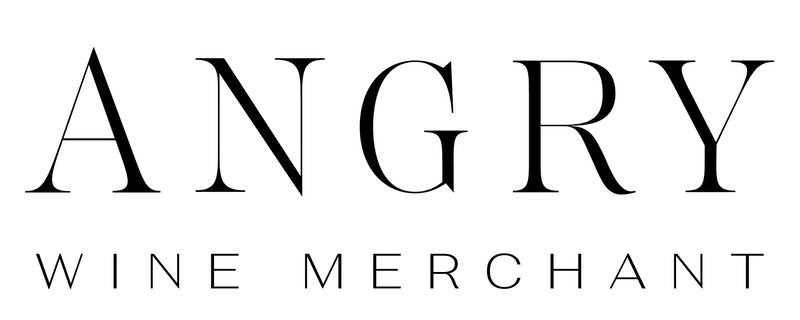- CRITICAL REVIEWS
- WINEMAKER NOTES
Robert Parker Wine Advocate
2010 Chateau Cheval Blanc, Saint-Emilion Grand Cru, France
2010 is an outstanding vintage. It was among the driest on record and cool evenings made it possible to pick grapes at optimum ripeness. The resulting wine combines concentration and finesse, and is perfectly balanced. When it reaches its peak, will it be even better than the illustrious 1947 Cheval Blanc?
Weather conditions and vine’s growing cycle
TEMPERATURES AND RAINFALL
2010 was a very dry year, especially during the growing season. Winter was mild with average rainfall. Every month from April to the end of September had lower-than-average precipitation, except for June, when it rained slightly more than usual. Temperatures were close to the thirty year average, but lower than the fifteen-year one. 2010 can thus be considered a dry and relatively cool year. The weather was good during the harvest: cool, especially at night, and dry in late September, then mild with a few showers in the first two weeks of October.
WATER BALANCE
In order to grow well, the vine needs for water stress to set in slowly so the grapes to ripen well and become concentrated. The lack of rain made for significant water stress in 2010. The water balance up until the 30th of September showed this to be the second driest year in half a century: only 2005 was drier. However, the vines did not react badly to this situation: on the one hand, because it occurred gradually and, on the one hand, because evaporation was not very great.
GROWING SEASON
Bud break was observed on the 8th of April for Merlot and the 13th of that month for Cabernet Franc. This was 10 days later than the usual dates. However, the vines made up for the delay by the time flowering occurred. Véraison took place in the first week of August, quite close to the average date. The first plots of Merlot were picked on the 20th of September, and Cabernet Franc was harvested between the 29th of September and the 14th of October. In order to pick each plot at the ideal moment, the harvest was spread out over 25 days. This was the longest ever recorded at Cheval Blanc.
The dry weather meant that vine diseases were only a minor issue. The major water stress slowed down vegetative growth – an essential factor for a great vintage. The weight of the berries was historically low, close to that in 2005 and a sure sign of concentration. The grapes were picked in fine, nearly perfect condition. A stable period of beautiful weather during the harvest meant that grapes in every part of the vineyard were fully ripe. The cool nights in September retained freshness and intrinsic aromatic expression.
Phenological stage Merlot 2010 Average 1994-2014 Cabernet franc 2010 Average
1994-2014
Bud break April, 8th March, 28th April, 13th April, 2nd
Flowering June, 1st May, 30th June, 5th June, 1st
Véraison August, 3rd August, 2nd August, 9th August, 8th
Beginning of the Harvest September, 20th September, 19th September, 29th September, 27th
End of the Harvest October, 2nd September, 27th October, 14th October, 5th
Number of days between…
Bud break and Flowering 54 days 63 days 53 days 60 days
Flowering and Véraison 63 days 64 days 65 days 68 days
Véraison and Harvest 48 days 48 days 51 days 50 days
Features of the vintage
RIPENING AND YIELDS
Water stress was definitely a factor in concentration, but seeing as this occurred incrementally, the vines did not suffer unduly. The berries weighed very little, which accounted for lower-than-average yields. 2010 was not a warm year, and the wines are very fresh and remarkably aromatic. The combination of these three factors resulted in a great vintage.
2010 yields (hl/ha) Average from 1996 to 2014
Merlot 28.9 38.9
Cabernet Franc 30.3 34.2
CELLAR WORK
Cheval Blanc practised almost no saignées (bleeding from fermentation vats) or chaptalisation.
2010 Cheval Blanc contains 2% press wine and was entirely aged in new oak barrels for 18 months.
Traditional fining with egg white was done in order to settle particles in suspension in barrel. Two egg whites per barrel were used. These were later eliminated by filtration.
BLENDING
Degree of alcohol 14. 5
Total acidity (g H2 S04/L) 3.0
Volatile acidity (g H2 SO4/L) 0.43
pH 3.88
Total SO2 (mg/L) 99
Reducing sugar content (g/L) 1.9
IPT (DO280) 87
Tasting
15 April 2010
The weather this year was ideal, with all the parameters for a very great vintage combining concentration, freshness, and finesse. 2010 Cheval Blanc has a dark, intense colour and a superbly deep, complex, and concentrated nose typical of great Cabernet Franc. The bouquet displays seductive floral and fruity aromas, along with fresh fig, blackcurrant, blackberry, and raspberry, as well as notes of bergamot and mint. With aeration, more floral notes appear, especially violet. The flavour is assertive from the very first, with fine-grained tannin that melts in the mouth. The wine is rich, compact, and silky on the middle palate. Tastes typical of great Cabernet Franc, and that only the greatest wines of Bordeaux can provide, come to the fore – particularly subtle floral nuances, such as violet. The aftertaste is never-ending and remarkably fresh. The power and richness of the vintage are kept in check by this delicate freshness that accounts for a perfect balance between concentration and finesse, right up until the end of the long finish. A complete and very complex wine, 2010 Cheval Blanc’s outstanding balance will enable it to age for many years.















